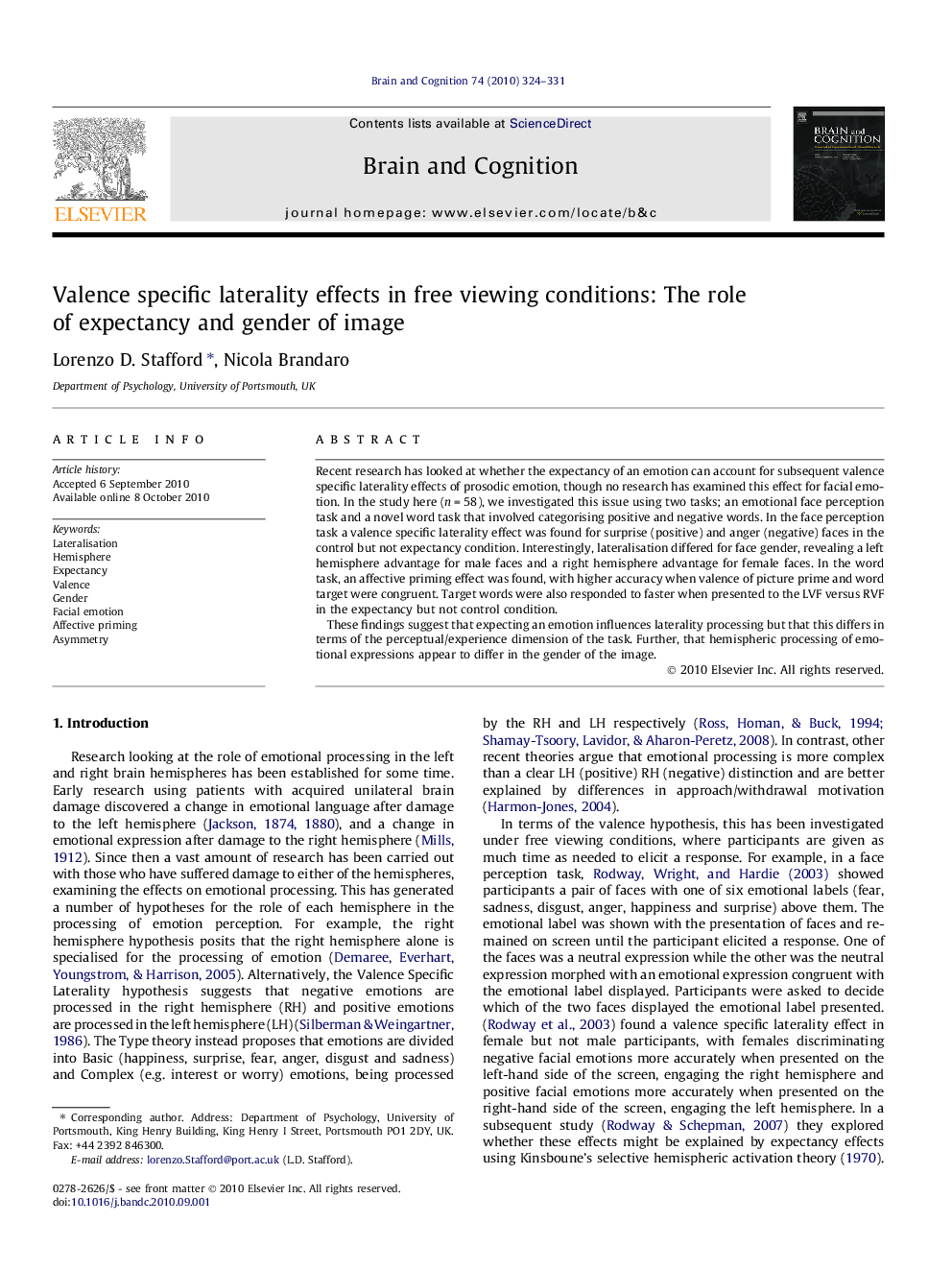| Article ID | Journal | Published Year | Pages | File Type |
|---|---|---|---|---|
| 924538 | Brain and Cognition | 2010 | 8 Pages |
Recent research has looked at whether the expectancy of an emotion can account for subsequent valence specific laterality effects of prosodic emotion, though no research has examined this effect for facial emotion. In the study here (n = 58), we investigated this issue using two tasks; an emotional face perception task and a novel word task that involved categorising positive and negative words. In the face perception task a valence specific laterality effect was found for surprise (positive) and anger (negative) faces in the control but not expectancy condition. Interestingly, lateralisation differed for face gender, revealing a left hemisphere advantage for male faces and a right hemisphere advantage for female faces. In the word task, an affective priming effect was found, with higher accuracy when valence of picture prime and word target were congruent. Target words were also responded to faster when presented to the LVF versus RVF in the expectancy but not control condition.These findings suggest that expecting an emotion influences laterality processing but that this differs in terms of the perceptual/experience dimension of the task. Further, that hemispheric processing of emotional expressions appear to differ in the gender of the image.
